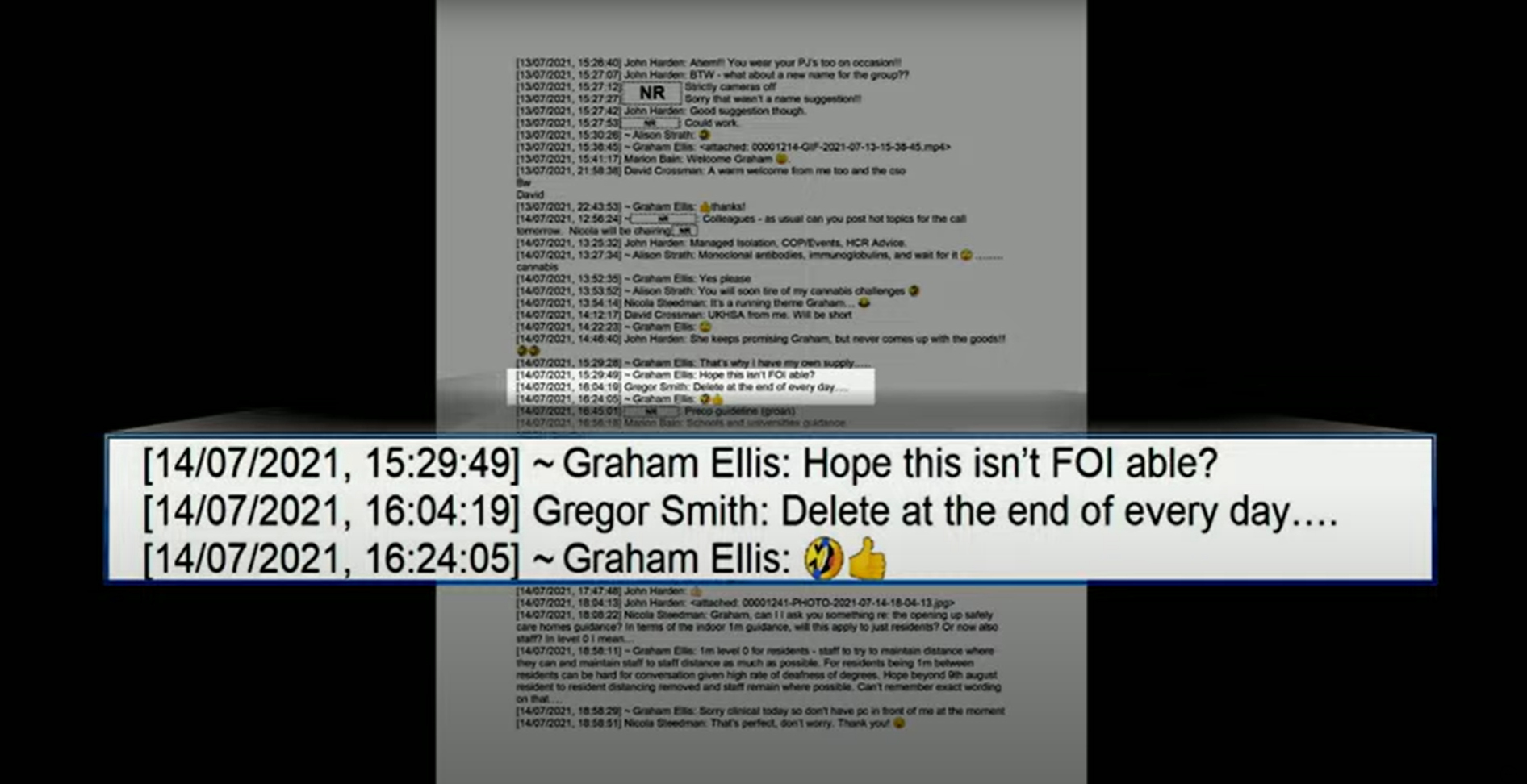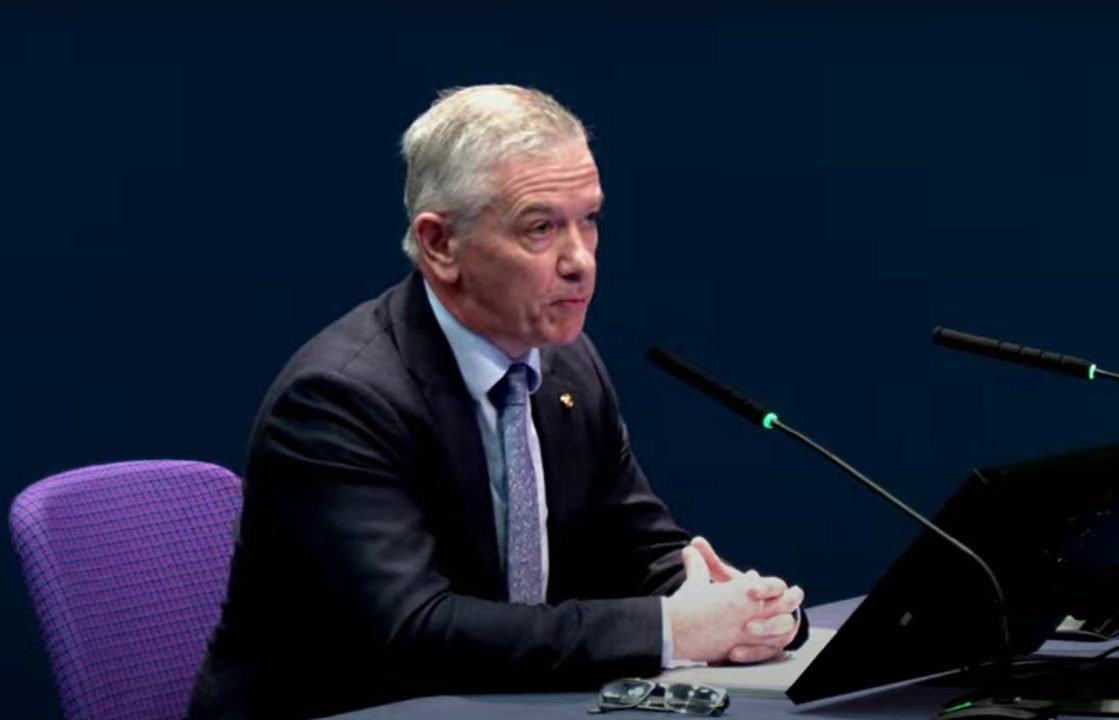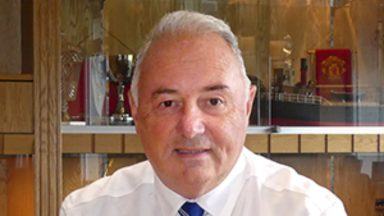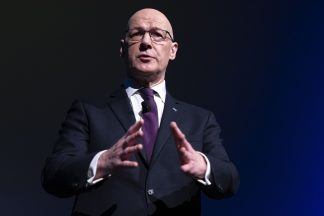Scotland’s chief medical officer told colleagues to delete WhatsApp messages “at the end of every day” during the pandemic, the Covid inquiry has heard.
Professor Sir Gregor Smith’s has added to a growing political storm around the retention of informal messages by senior decision makers and their advisers during the handling of Covid-19.
Former first minister Nicola Sturgeon and her deputy John Swinney did not retain messages, while the national clinical director, Professor Jason, Leitch said deleting messages was a “bedtime ritual”.
During an appearance before the inquiry on Monday, as it continues to take evidence in Edinburgh, a message from the chief medical officer in a group chat in July 2021 with other Government medical advisers was shown for the first time.
 UK Covid-19 Inquiry
UK Covid-19 InquiryDeputy chief medical officer, Professor Graham Ellis, said “hope this isn’t FOI-able?” in reference to freedom of information, in an exchange where he appeared to joke about having “my own supply” of cannabis.
Responding, Sir Gregor said: “Delete at the end of every day…”
Asked about the comments, by counsel to the inquiry, Jamie Dawson KC, Sir Gregor said: “Scottish Government advice at this time was not to retain information for longer than it was necessary, it was to make sure that information that was pertinent, any information – particularly discussions which ended up in a decision – was captured within the corporate systems.

“My practice was to make sure that any information which was important in that way was then captured in email form on the system, was formally recorded so that it was an auditable trail, and I think you will see evidence of my approach to this within the conversations and within other conversations where I exalt other members of those conversations to do the same.”
Asked if he deleted messages at the end of every day, Sir Gregor said: “If not at the end of every day then certainly on a frequent basis, I deleted information which was no longer needed to be kept.”
Information that the chief medical officer deemed pertinent would not be recorded “verbatim”, he added, saying the “essence” of decisions or information given would be.
Sir Gregor went on to say advice had been given to Scottish Government employees to regularly delete informal messages, “partly for security purposes”.
This comes after the inquiry was told by Mr Dawson that messages held by Nicola Sturgeon and John Swinney had been deleted, while logs from the national clinical director showed he said he regularly deleted messages.
Sturgeon, however, said messages from her had been submitted to the inquiry by other people.
The chief medical officer, who took over the post after his predecessor, Dr Catherine Calderwood, broke lockdown rules to visit her second home, also told the inquiry the loss of life in Scotland due to Covid-19 was “inevitable” due to the scale of the pandemic.
Asked by Mr Dawson if the Scottish Government believed “no death from coronavirus was acceptable”, the chief medical officer said the phrase was not one that he recognised.
“Certainly from a clinical perspective, there was a deep realisation – tragic though it is, and it was an absolute tragedy for some families – that it was almost inevitable given the scale of the threat which was faced by a novel virus in a population that had no immunity to it, it was likely that there were going to be deaths,” he said.
The Scottish Government, he said, would do its best to try to “limit the harm” caused by the virus.
Follow STV News on WhatsApp
Scan the QR code on your mobile device for all the latest news from around the country





























